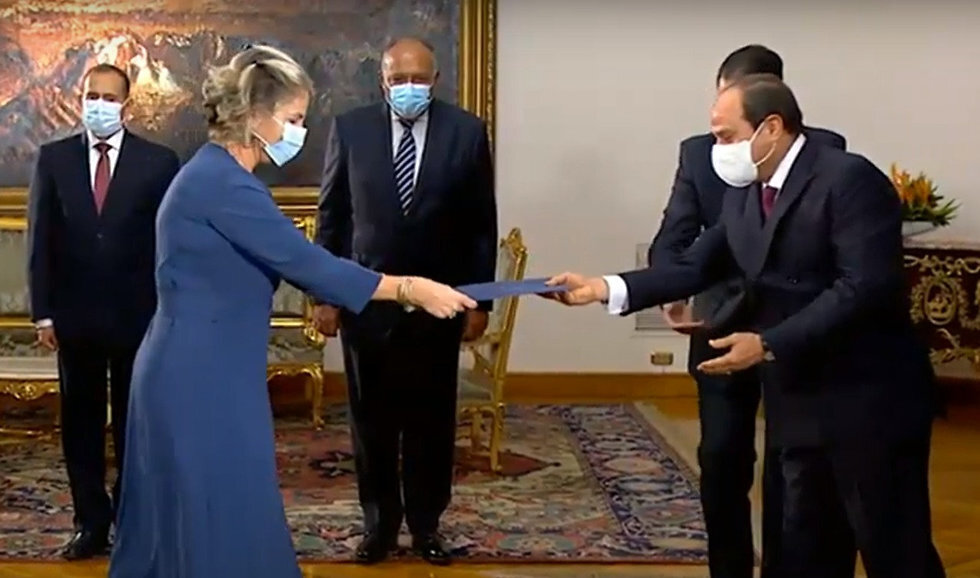Getting your Trinity Audio player ready...
Israeli diplomats on Tuesday issued a warning to Prime Minister Benjamin Netanyahu, Foreign Minister Gabi Ashkenazi and Defense Minister Benny Gantz, telling them that the government was harming Israel's foreign policy efforts.
In a letter sent to the three senior officials, 35 ambassadors and consuls warned that they were about to complete their tenure in their diplomatic posts but their replacements had not yet been approved by the government and would therefore be unable to assume their new postings.
3 View gallery


Israeli Ambassador to Egypt Amira Oron presents her credentials to Egyptian President Abdel Fattah al-Sisi in Cairo, Sept, 2020
"All postings received approval from the Foreign Ministry and the diplomats chosen were all experienced and well qualified, but their appointments have not received cabinet approval and therefore a third of Israel's foreign missions stand to remain without senior envoys in residence at this sensitive time," the diplomats wrote.
"The foreign service must formulate a supportive international environment to promote Israeli achievements after the military operation against Hamas, advance the government's policy on the Iranian nuclear question and deepen the ties with the signatories of the Abraham Accords," the diplomats.
"Israeli emissaries must also combat anti-Israeli decisions in international forums such as the UN, fight surging anti-Semitism and promote Israeli trade around the world," they said.
They also warned that leaving the embassies and consulates unmanned would impact on Israelis abroad who may need their services, especially with the coronavirus pandemic still raging in most countries.
"The process of assigning a diplomat to an overseas post takes weeks if not months and can only begin after the government has approved it. So, we are already within a critical timeframe," they said.
3 View gallery


Foreign Minister Gabi Ashkenazi, left, and Defense Minister Benny Gantz in the Knesset
(Photo: The Knesset)
The letter also stresses the practical problems such delays cause for prospective diplomats who now face uncertain time periods for relocation, house hunting and placing children.
"Diplomatic spouses must plan their employment opportunities for the coming year and since most rental contracts expire over the summer, some envoys might find themselves without a roof over their heads," they wrote.


